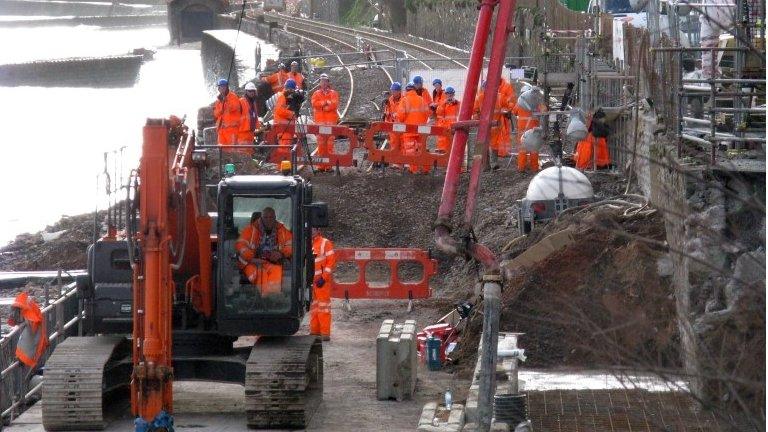Rail workers to strike on bank holiday Monday
- Published
- comments
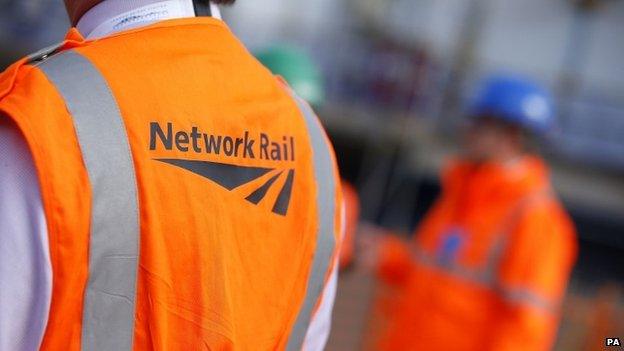
Network Rail workers are to strike for 24 hours from 17:00 BST on bank holiday Monday in a row over jobs and pay.
The action will see signallers, maintenance staff and station workers walk out on 25 May in the first UK-wide rail strike in 20 years.
Mark Carne, chief executive of Network Rail said the strike action was holding "the travelling public to ransom".
Talks aimed at averting a strike are to be held next week, the conciliation service Acas said.
The RMT union said the company's latest pay proposals were an "attack" on workers' living standards and that workers also had concerns about safety issues.
'Massive pressures'
They insist the main impact on passengers will be felt on Tuesday 26 May - as many commuters return to work after having a day off.
But the action is also expected to have an impact on what is traditionally a busy bank holiday travel period for millions of rail users.
The BBC's employment and industry correspondent, John Moylan, said the fact that the RMT has given 10 days notice of the strike, rather than the legally required seven days, could give both sides more time to resolve the dispute before the bank holiday weekend.
Members have rejected a four-year deal, with a £500 lump sum per worker this year, followed by three years of increases matching inflation, as well as a commitment to no compulsory redundancies until December 2016.
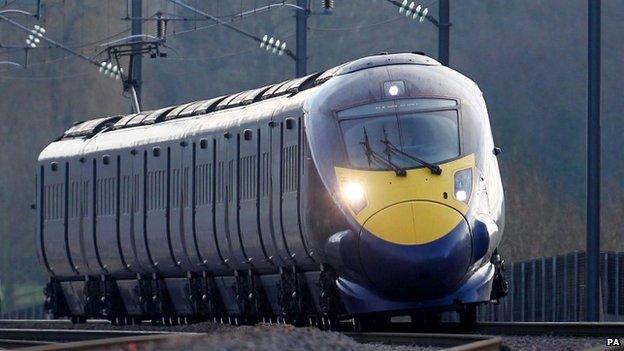
Network Rail runs stations across the UK
Steve Hedley, assistant general secretary of the RMT, told the BBC the strike was about "compulsory redundancies, safety and pay - in that order".
He said: "Compulsory redundancies will affect safety, because what they are trying to do is get skilled people out of the industry. At the same time they are moving towards a model of employment that's relying on people on zero hours contracts and temporary workers."
He added: "I believe that there has probably been some political interference, to tell Network Rail executives not to go to Acas, don't talk to the union and perhaps David Cameron and his government want to take us on."
Network Rail runs and develops Britain's rail tracks as well as looking after signalling, bridges and tunnels. They also run stations in the UK, including 10 in London.
Last year the company reported a pre-tax profit of £1.035bn as rail passengers rose 5.7% in the year to 1.5 billion.
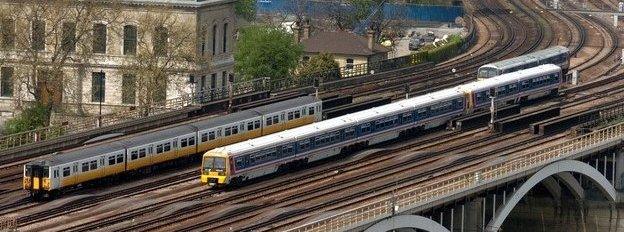
Mr Carne said: "The RMT say we can afford more than what's on offer. What they don't say is that Network Rail is a public service body and that all profits are reinvested in building a bigger, better, more reliable railway.
"Any pay increase comes from the pockets of taxpayers and fare paying passengers."
The action is the first major industrial relations challenge for the new Conservative government, which is committed to tightening the rules on strike ballots - particularly covering essential public services.
Transport Secretary Patrick McLoughlin condemned the strike and said Network Rail had made a "fair offer".
"Rail passengers will not thank the unions for inflicting this unnecessary disruption," he added.
- Published12 May 2015
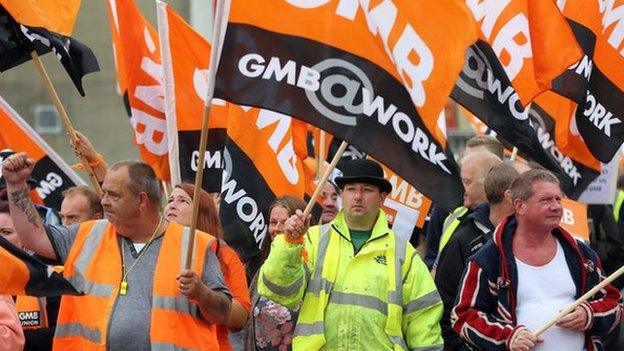
- Published12 June 2014
